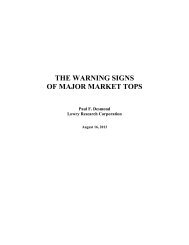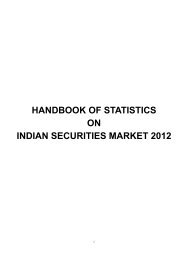1 |
april2016
april2016
You also want an ePaper? Increase the reach of your titles
YUMPU automatically turns print PDFs into web optimized ePapers that Google loves.
It takes little imagination to see this sorting process at work across professions. Someone who believes that fairness is the<br />
highest moral value will want to choose a vocation where they can exert this value, perhaps as a public defender, a teacher<br />
of underprivileged children, or a sports referee. Those who believe, instead, that fairness is an unimportant value might<br />
find themselves drawn to the prosecutorial side of the law, or high-pressure sales, or indeed, Gordon Gekko’s caricature<br />
of predatory finance. This is not to say that everyone in those professions shares those values, of course, but rather that<br />
individuals with those values may find such professions more congenial—a form of natural selection bias—and will,<br />
therefore, eventually be statistically over-represented in that subpopulation.<br />
At the same time that evolution shapes individual behavior, it also acts on how individuals relate to one another. We call<br />
the collective behavior that ultimately emerges from these interactions “culture.” Many forms of collective and group<br />
behavior have been conceptually difficult for classical evolutionary theory to explain since it is primarily a theory centered<br />
on the reproductive success of the individual, or even more reductively, of the gene. Recent research in evolutionary<br />
biology, however, has revived the controversial notion of “group selection,” in which groups are the targets of natural<br />
selection, not just individuals or genes. Although many evolutionary biologists have rejected this idea, arguing that<br />
APRIL 2016<br />
48 | TECHNICALLY SPEAKING




